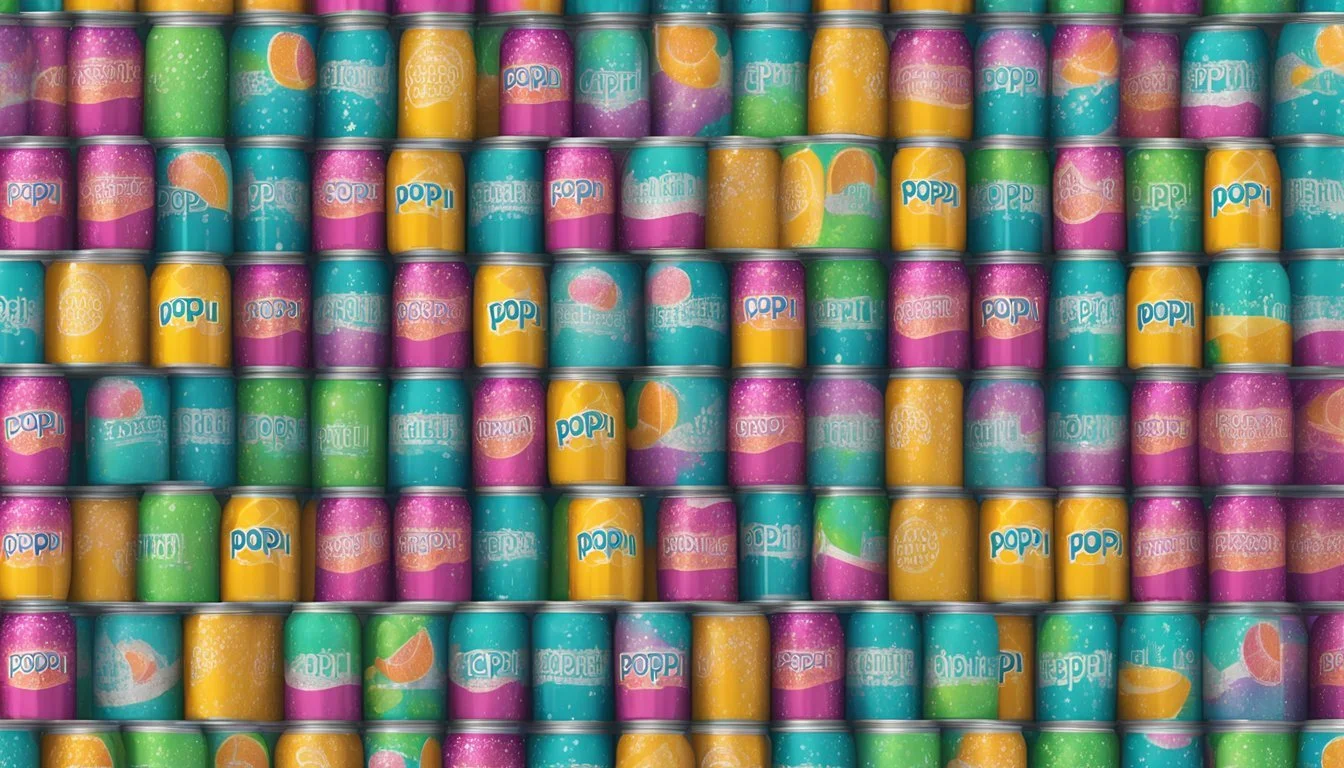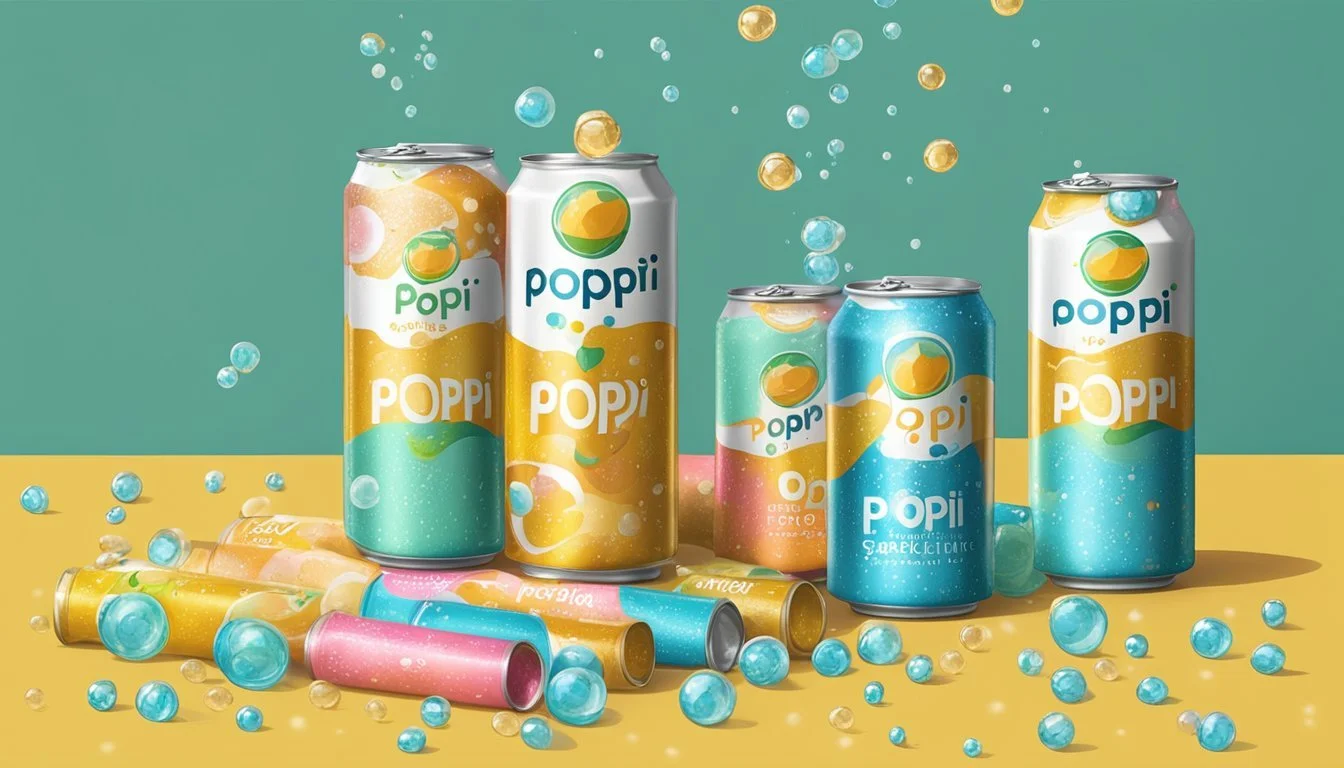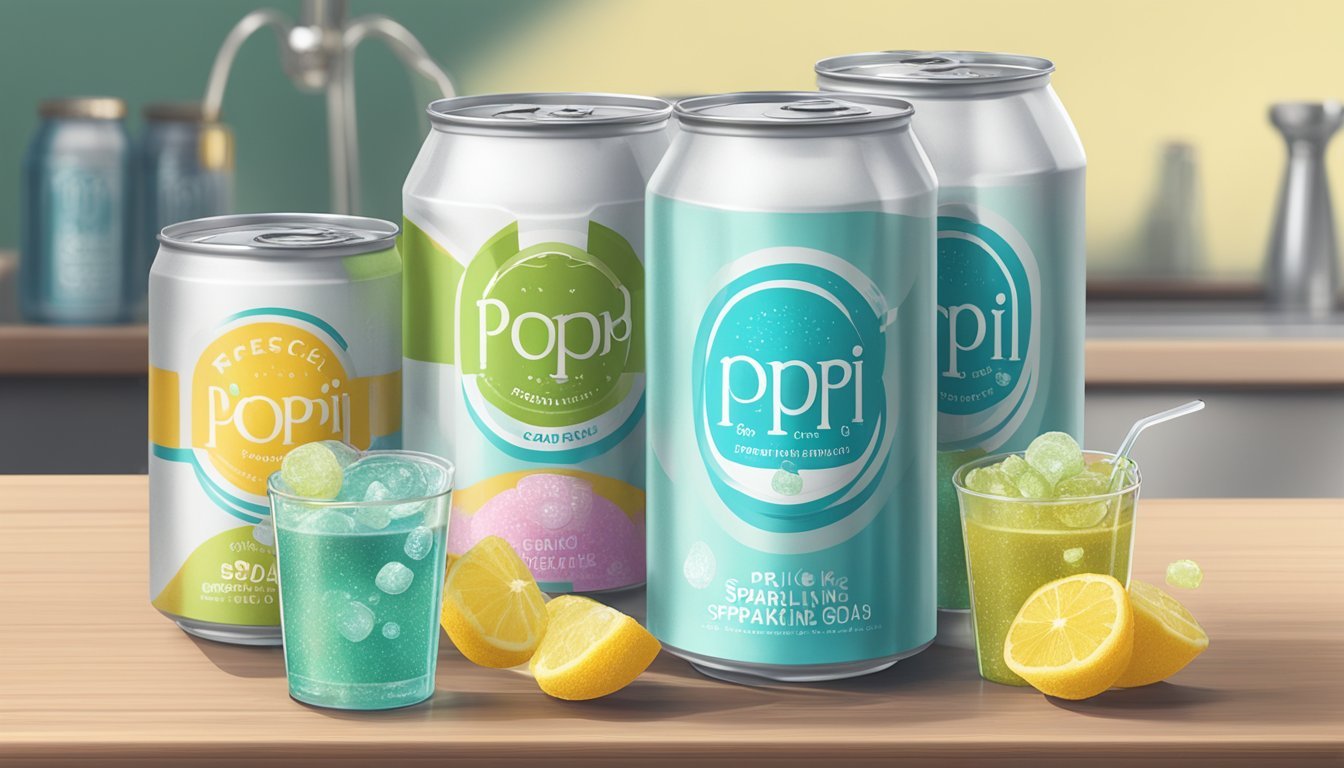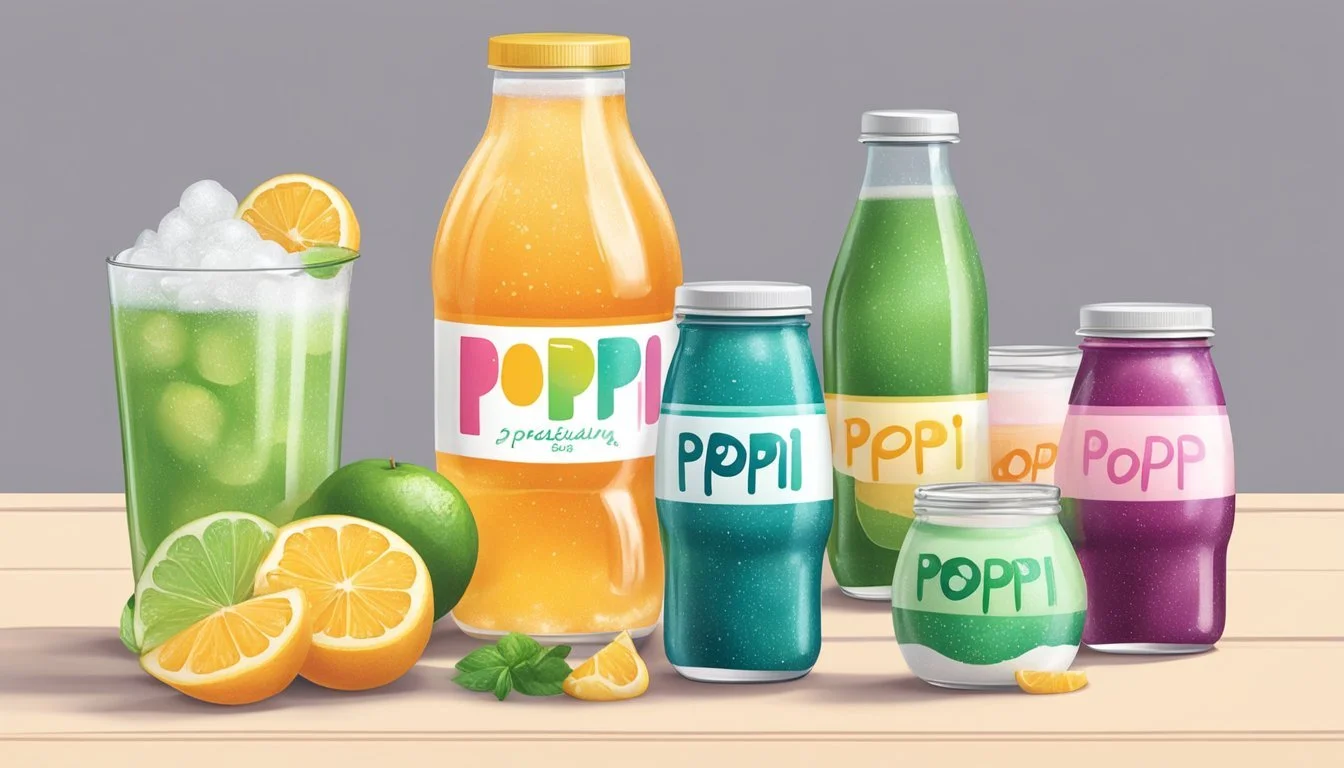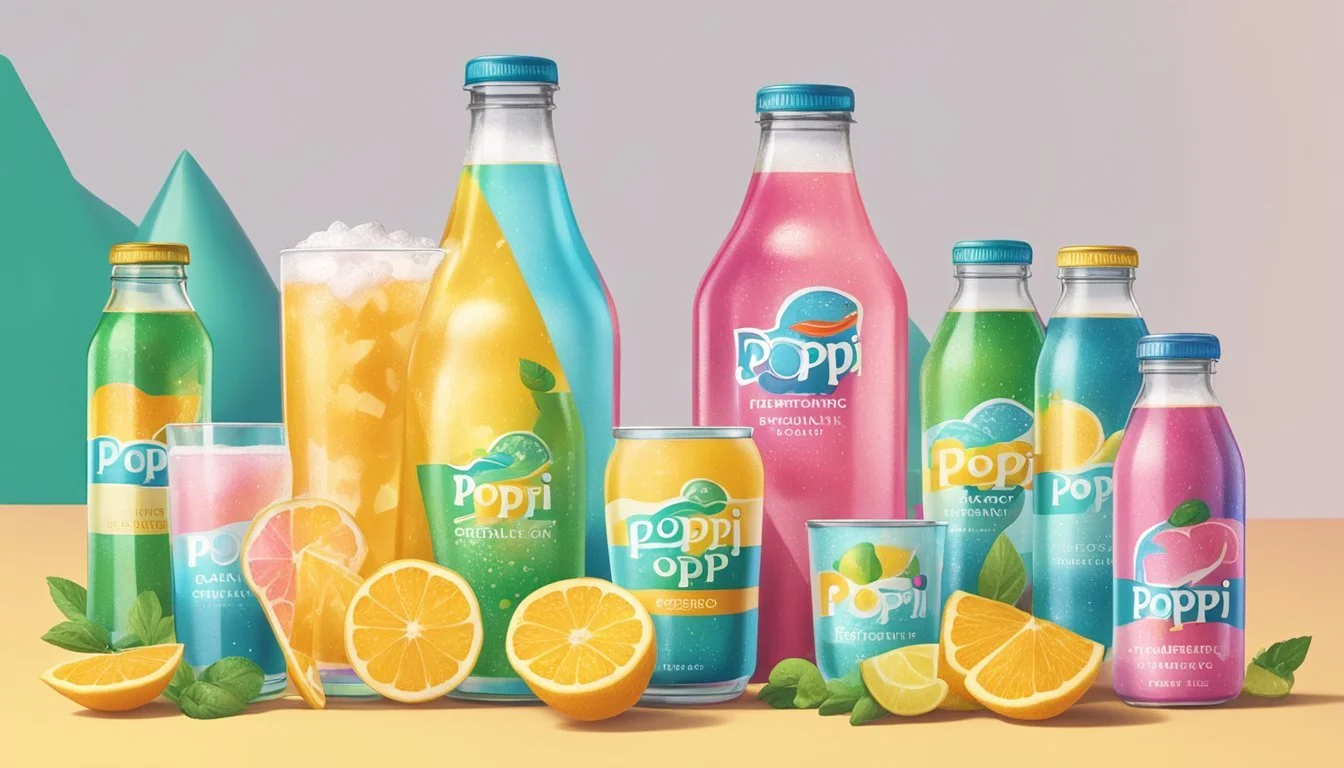How Many Servings of Poppi Sparkling Prebiotic Soda Is Too Much
Expert Guidelines
Balancing health and enjoyment is crucial when it comes to beverages like Poppi sparkling prebiotic soda. Poppi, a popular prebiotic soda, offers a refreshing alternative to traditional sugary drinks, infusing each can with apple cider vinegar and other health-focused ingredients. But how much is too much?
Most experts agree that consuming more than two to three servings of Poppi a day might lead to discomfort or potential side effects. This is largely due to the apple cider vinegar content, which, while beneficial in moderate amounts, can cause stomach upset and nausea if over-consumed. Moderate consumption ensures you enjoy the benefits without adverse effects.
Choosing the right amount hinges on individual tolerance. Some may find they can handle more, while others might need to limit their intake. By being mindful of their body's reactions, individuals can enjoy Poppi's prebiotic benefits without compromising their well-being.
Understanding Prebiotics
Prebiotics serve as food for beneficial bacteria in the gut and help improve digestion and overall gut health. Here, the role of prebiotics and their common sources are discussed.
Role of Prebiotics in Gut Health
Prebiotics are non-digestible fibers that stimulate the growth of beneficial bacteria in the gut. They are important as they nourish the gut microbiome, which plays a crucial role in maintaining digestive health.
Prebiotic fibers such as inulin can enhance the growth of bifidobacteria and lactobacilli. These beneficial bacteria aid in breaking down food, absorbing nutrients, and fighting off harmful bacteria. This can improve overall digestion and immunity.
Research indicates that consuming 3-10 grams of prebiotic fiber daily can effectively promote gut health. However, it's important to note that individual responses to prebiotics can vary. Monitoring one's intake and adjusting based on digestive comfort is essential.
Sources of Prebiotics
Many everyday foods contain prebiotics and can easily be incorporated into a diet. Common sources include foods high in inulin, such as chicory root, garlic, onions, and bananas. These foods provide essential fibers that support gut health.
Other sources of prebiotics include whole grains like barley and oats, legumes like lentils and beans, and certain fruits and vegetables. Additionally, prebiotic-enriched products like Poppi Sparkling Prebiotic Soda offer a convenient option for boosting prebiotic intake.
Incorporating a variety of these foods into the diet can enhance the diversity of the gut microbiome and promote better digestive health. For people seeking to support their gut health, these food choices offer natural ways to increase prebiotic intake.
Analyzing Poppi Sparkling Prebiotic Soda
Poppi Sparkling Prebiotic Soda offers a unique combination of ingredients and nutritional benefits. This section provides an in-depth examination of its components, a comparison with other sodas, and highlights its distinct features.
Ingredients and Nutritional Profile
Poppi's 12-oz can contains only 25 calories, making it a low-calorie beverage choice. It has 4-5g of sugar and 2g of fiber. The simpler ingredient list includes:
Sparkling Water
Organic Cane Sugar
Organic Apple Cider Vinegar
Organic Agave Inulin
Natural Flavors
Lemon Juice Concentrate
Stevia
These ingredients are selected for their health benefits, particularly for gut health, as apple cider vinegar and agave inulin are known prebiotics.
Comparative Analysis with Other Sodas
Compared to traditional sodas, Poppi has significantly fewer calories and sugar content. Regular sodas can contain upwards of 150 calories and 40g of sugar per can.
Poppi:
25 calories
4-5g sugar
Traditional Sodas:
~150 calories
40g sugar
Olipop, another prebiotic soda, also offers a healthier alternative, but Poppi’s ingredient list is noted for being simpler. Both products provide similar levels of prebiotics, yet Olipop might have a more complex assortment of added fibers and botanicals.
The Unique Selling Points of Poppi
Poppi's use of organic apple cider vinegar sets it apart. This component is not only a source of prebiotics but can also aid in digestive health. Additionally, the low sugar content and use of natural sweeteners like stevia appeal to health-conscious consumers wanting to avoid artificial sweeteners.
The focus on a clean and simple ingredient profile helps build trust among those wary of complex, unpronounceable additives. Poppi caters specifically to those looking for a healthier soda alternative that benefits gut health without compromising on taste.
Health Considerations and Dietary Impact
When considering Poppi Sparkling Prebiotic Soda, it's important to be aware of its potential benefits for digestive health, possible side effects, and guidelines for safe consumption.
Benefits of Poppi for Digestive Health
Poppi contains prebiotic fibers, such as those derived from apple cider vinegar, which may support gut health by promoting the growth of beneficial gut bacteria. These prebiotics can aid in digestion and may help in reducing bloating and gas.
Additionally, these drinks often contain ingredients like ginger and lemon, which are known for their digestive benefits. It's thought that regular but moderate consumption of prebiotic soda can help maintain a healthy digestive system.
Potential Side Effects and Allergies
Even though Poppi is marketed as a healthy alternative, it’s essential to consider potential side effects. Some individuals may experience bloating or gas due to the fiber content. Additionally, the sugars in Poppi can contribute to calorie intake, which may be a concern for those managing their weight.
Allergic reactions to specific ingredients like apple cider vinegar or added botanicals are possible. It's crucial for consumers with sensitive digestive systems or allergies to check ingredient lists carefully to avoid adverse reactions.
Safe Consumption and Moderation
Moderation is key when consuming Poppi. Despite its benefits, excessive intake can lead to discomfort, such as bloating or digestive issues due to high fiber and sugar content. Dietitians often recommend limiting prebiotic soda to 1-2 servings per day.
This guideline helps ensure consumers reap the gut health benefits without overloading their system. For those new to prebiotic drinks, starting with smaller portions can also help the body adjust gradually.
Combining Poppi with a balanced diet rich in natural fibers from fruits, vegetables, and whole grains can enhance digestive health while minimizing the risk of potential side effects. Drinking water alongside prebiotic sodas can also aid digestion and reduce bloating.
Consumer Insights and Market Perception
Poppi has garnered significant attention due to its innovative approach to soda, blending prebiotic benefits with appealing flavors. Consumers have voiced their opinions and experiences, shaping market perception and influencing industry standards.
Consumer Reviews and Feedback
Consumers have expressed a mix of enthusiasm and skepticism. Positive reviews highlight unique flavors like Raspberry Rose and Watermelon, praising the use of prebiotics such as agave inulin. Many appreciate the low sugar content compared to traditional sodas, deeming Poppi a healthier alternative.
Negative feedback often mentions taste and digestive discomfort. Some consumers report experiencing nausea or bloating, nicknaming it "nausealette." These mixed responses reflect varying individual experiences and dietary tolerances.
Legal Matters and Class Action Lawsuits
Legal scrutiny has accompanied Poppi’s rise. A notable lawsuit was filed in San Francisco on May 30, challenging the health claims made by the company. The plaintiff argued that Poppi's assertions about its prebiotic benefits were misleading. This case has drawn attention from consumer advocacy groups and could impact marketing practices.
Instances like this underline the importance of clear, substantiated health claims to avoid consumer deception and legal challenges. Monitoring compliance with Food and Drug Administration (FDA) standards is crucial to maintaining trust and market integrity.
Consumer Advocacy and Industry Standards
Consumer advocacy organizations, such as the Center for Science in the Public Interest, have shown interest in products like Poppi. These organizations emphasize the importance of transparency and adherence to dietary guidelines.
The Academy of Nutrition and Dietetics advises moderation in consumption, echoing broader nutritional goals around sugar and functional ingredients. Industry standards push for clear labeling and accurate health benefit claims. Ensuring that consumer interests are safeguarded promotes trust and guides responsible consumption in growing markets like prebiotic sodas.
Maximizing Health Benefits and Minimizing Risks
To maximize the health benefits of Poppi sparkling prebiotic soda while minimizing risks, it is crucial to identify personal tolerance levels, incorporate the beverage into a balanced diet, and understand the maximum daily intake.
Identifying Personal Tolerance Levels
Each individual may have a different tolerance level for prebiotic sodas like Poppi.
It is recommended to start with a low quantity, such as half a can, to observe any adverse reactions. Common side effects at higher doses include flatulence, bloating, and diarrhea, particularly due to the fiber content.
It is essential to monitor one's body's response and adjust intake accordingly to avoid these discomforts.
Incorporating Poppi into a Balanced Diet
Poppi soda can be a part of a healthy diet when consumed in moderation.
Combining it with high-fiber foods like oats, artichokes, and various plants promotes good digestive health. Balancing dietary fiber through natural sources and prebiotic sodas ensures a diverse intake that supports the immune system and overall well-being.
Avoid relying solely on Poppi for dietary fiber, as whole foods offer additional nutrients.
Understanding Maximum Daily Intake
Experts suggest that around 3-10 grams of prebiotic fibers per day are effective for gut health.
Each can of Poppi contains about 2 grams of dietary fiber from ingredients like organic cane sugar and apple cider vinegar. While this amount is beneficial, consuming more than two to three cans daily may introduce excessive added sugars and potential digestive issues.
Staying within this limit helps harness the benefits without negative effects.

